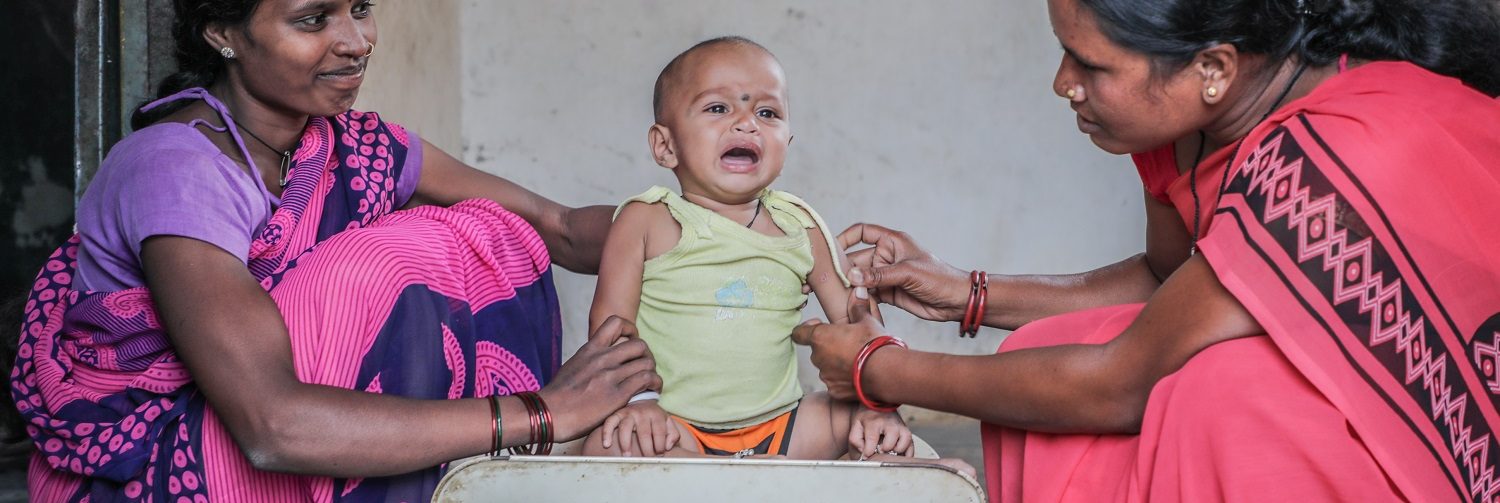In a majority of low- and middle-income countries (LMIC), including India, Demographic Health Surveys (DHS) are the primary source of nationally-representative nutrition data. In a 2018 online survey of 191 nutrition professionals conducted by the Data for Decisions to Expand Nutrition Transformation (DataDENT) initiative, the majority of respondents reported using nutrition data from population-based household surveys, primarily DHS (74%) and Multiple Indicator Cluster Survey (MICS) (42%). These surveys play an important role in shaping national nutrition policy, program monitoring & evaluation, advocacy, and research. About every five years, the DHS Program revises the core questionnaires used across countries implementing DHS and is currently accepting recommendations until March 15, 2019.
The revisions to the DHS core questionnaire offer a key opportunity to ensure that the DHS nutrition content captures critical nutrition data needs, advancements in nutrition measurement, and current global and country nutrition guidelines. DataDENT has been working with a diverse group of lead authors and technical reviewers from the nutrition community to develop a set of ten recommendations for DHS-8 core questionnaire. These recommendations have been submitted to the DHS Program’s DHS-8 Questionnaire Review Portal.
In India, the DHS survey questionnaire is also the base for National Family Health Survey (NFHS) questionnaires and many others. The NFHS survey has typically included questions on several nutrition elements but not all interventions in India’s policy framework for nutrition are covered in the core survey instrument. Indeed, POSHAN Abhiyaan (or the National Nutrition Mission) includes a full set of evidence-based interventions ranging from nutrition interventions during adolescence to interventions during pregnancy, lactation and in early childhood. Including the right questions on these nutrition interventions and practices in large-scale surveys like the DHS/NFHS can enable policy stakeholders and researchers to assess progress on the reach of nutrition interventions and on nutrition practices more robustly. Strengthening the nutrition content of the core DHS survey instrument that also forms the base for the NFHS surveys is, therefore, highly relevant in today’s context for India.
How can you help?
Voices from national nutrition stakeholders can help strengthen these technical recommendations. We, therefore, encourage the nutrition community in India to review the recommendations submitted by DataDENT and to offer their support and/or additional comments. To help support this, you will need to do the following:
1) register as a DHS Program Forum user,
2) review the posted recommendations, and
3) comment on the thread of each recommendation to demonstrate support on behalf of their institutions, or as individuals.
Recommendations posted by DataDENT are listed below and have “By: DataDENT” adjacent to the forum post title. Please refer to the DHS Program’s guide for additional information on how to post comments.
- Coverage of Nutritional Interventions during Antenatal Care (ANC) [link]
- Support for Breastfeeding at Health Facilities—linked to monitoring of Baby Friendly Hospital Initiative (BFHI) [link]
- Marketing of Breastmilk Substitutes [link]
- Counseling about Breastfeeding at Early Critical Time Points [link]
- Infant and Young Child Feeding (IYCF) Counseling 6-23 Months [link]
- Assessment of Child Growth [link]
- Updated Indicators for Infant and Young Child Feeding (IYCF) [link]
- Minimum Dietary Diversity for Women (MDD-W) and Unhealthy Diets [link]
- Measuring Household Food Insecurity [link]
- Food Fortification: Household coverage of fortifiable foods [link].
Thank you for your support in this effort!



